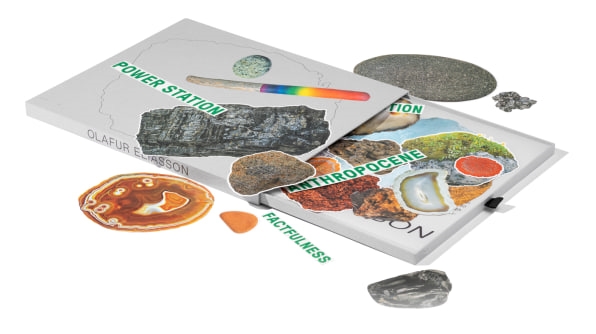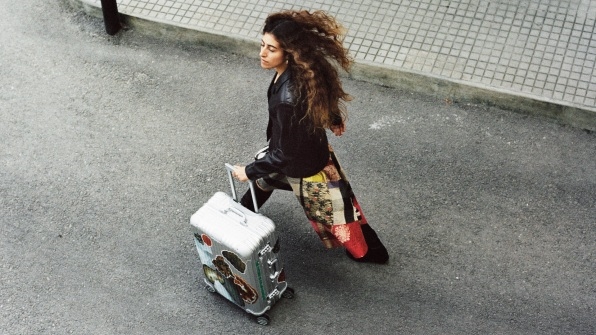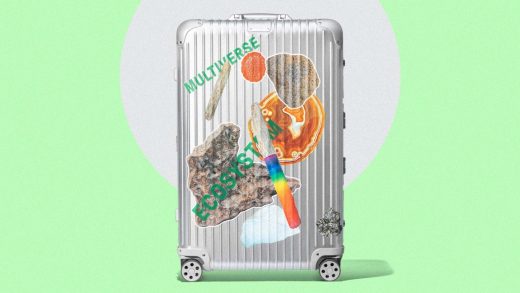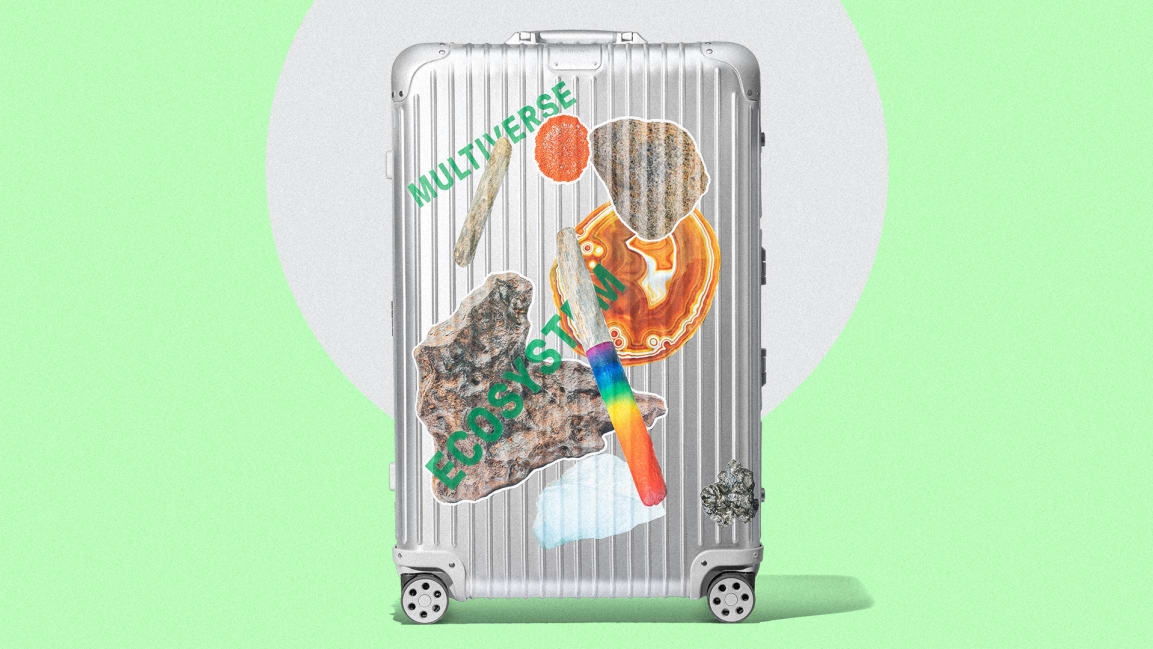Olafur Eliasson’s clever trick for coping with hellacious travel
The Danish-Icelandic artist Olafur Eliasson travels frequently for work. One week, he’s designing costumes for an opera performance of Hippolytus and Aricia in Berlin. The next week, he’s in London, presenting a new work at an art gallery. Then he’s in Reykjavik, discussing his longstanding collaboration with the late artist Einar Thorsteinn.
It’s one of the great pleasures of his life. But he finds the act of flying and moving through airports to be a dehumanizing experience. “I find that traveling creates a kind of numbness to the world,” he says. “Essentially, airports are all the same, the logistics of travel are always challenging, and it’s devoid of any meaningful interpersonal experiences.”
Today, he reveals a set of stickers he designed for the 120-year-old luggage brand Rimowa. The stickers are meant to plaster the surface of a suitcase, and each sticker features an image from nature–like rocks or moss crystals–together with words, like Power Station, Anthropocene, and Factfulness. “It’s a way of coding your bag, and showing what you think is important to you,” Eliasson says.

Eliasson works closely on art projects with the Louis Vuitton Foundation. Rimowa and Louis Vuitton share the same parent company, LVMH, which is how Eliasson happened to meet Alexandre Arnault, Rimowa’s CEO.
Rimowa’s suitcases have a sleek, industrial design that’s popular among high-profile creatives, including Johnny Ive and Virgil Abloh. Eliasson himself brings a Rimowa case with him on his journeys. So when he chatted with Arnault, the two decided to collaborate on a project that would spark conversation about the existential challenges of travel. “We wanted to find a way to make travel more personal,” he says. “But we’re also interested in bigger questions about being human, and the environment, which traveling brings to light.”
The stickers are a playful–and at $340, exceptionally pricey–take on the decals that people typically put on their suitcase as souvenirs of the glamorous places they have visited or the expensive hotels at which they have stayed. “I wasn’t interested in highlighting the spectacular,” Eliasson says. “I was very curious about the more mundane things that we take with us on our journeys.”

Even if you don’t have $340 to spend on the stickers, you could steal a page from Eliasson’s travel playbook: He tries to carry a small piece of nature with him when he travels, like a stone or some moss. He likes how these things remind him of the natural world when he’s in the middle of a crowded airport or on a plane taking in recycled air. With the stickers, he hopes to give other people a similar tool for remembering the natural world in these wholly unnatural spaces.
But there’s also a deeper message about the environment that undergirds this project. Air travel is a major source of carbon dioxide emissions. If you fly from New York to California, you are responsible for 0.9 metric tons of carbon dioxide, which is about 20% of what your car emits in one year. For the average person, flying makes up a significant portion of their overall carbon footprint, which comes to about 16.4 metric tons a year per capita.
Hector Muelas, Rimowa’s chief brand officer, recognizes that his brand has a vexed relationship with issues of sustainability. “We’re absolutely aware that we’re an accessory that is part of a highly polluting industry,” Muelas says. “We’re all for helping to facilitate discussions about how to make traveling more sustainable.”
Much of Eliasson’s recent work has focused on sustainability. For instance, he recently helped design a portable lamp call Little Sun that uses solar power to bring light to places that do not have access to electricity, like some villages in Africa. All proceeds from the Rimowa sticker project will go the Little Sun Foundation, founded by Eliasson, and help realize its mission: delivering solar energy to the most vulnerable communities in the world
The stickers are designed to nudge people to think about the environmental impact of traveling, even as they travel. “I am not naive enough to think that my stickers will make people travel less,” Eliasson says. “But I am a strong believer in starting the conversation. And I think this is about reorganizing our values and being more focused on our planet.”
(24)



